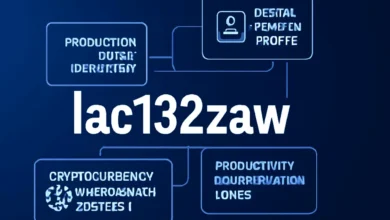Top 10 Automation Testing Tools for Enhanced Software Quality

Automation testing is crucial for ensuring software quality and accelerating development cycles. Choosing the right tools can significantly impact efficiency and effectiveness. This article presents a curated list of the top 10 automation testing tools, highlighting their key features and benefits to help you make informed decisions for your projects.
1. Katalon: All-in-One Automation Testing Solution
Katalon stands out as a comprehensive, all-in-one automation testing tool designed to streamline the testing process across various application types. It offers robust capabilities for UI and API test case creation for web, desktop, and mobile applications, leveraging pre-built automation testing frameworks.
Key features of Katalon include a centralized Object Repository for efficient management of UI elements, built-in support for test data management, data-driven testing, and BDD (Behavior-Driven Development) testing. It provides flexible test execution options, allowing tests to run on local machines, remotely, in the cloud, with emulators/simulators, or on private devices. Katalon also supports parallel test execution via its Runtime Engine, significantly speeding up the testing cycle. Furthermore, it seamlessly integrates with popular CI/CD tools, enabling automated test triggers upon code merges. Katalon offers detailed test reports, including screenshots, videos, HTML snapshots, and email reports, for comprehensive insights into test performance.
Notably, Katalon is among the pioneers in AI-powered automation testing tools, featuring capabilities like automatic test maintenance and AI-powered regression testing with TrueTest, which analyzes user behavior in production environments to autonomously generate relevant test cases. This makes Katalon an excellent choice for teams seeking a versatile and intelligent testing solution.
2. Selenium: The Foundation of Web Automation
Selenium is a widely adopted open-source web automation framework that has been a foundational tool in the UI testing ecosystem since its release in 2004. It empowers automation across various browsers, platforms, and programming languages, making it a versatile choice for web application testing.
The Selenium suite comprises three core components: Selenium WebDriver for script-based test automation, Selenium Grid for distributed parallel execution across browsers and machines, and Selenium IDE for quick prototyping and learning through record-and-playback functionality. Selenium supports a wide array of programming languages, including Java, C#, Python, JavaScript, Ruby, and PHP, and is compatible with major browsers like Chrome, Firefox, IE, Microsoft Edge, Opera, and Safari. Its capabilities extend to testing on local or remote machines, parallel and cross-browser executions for reduced execution time and increased test coverage, and integrations with other testing frameworks and CI/CD tools. Selenium remains a go-to solution for robust and flexible web automation.
3. Appium: Mobile Automation for Android and iOS
Similar to Selenium, Appium is an open-source automation testing tool specifically designed for mobile applications. It enables users to write automated UI tests for native, web-based, and hybrid mobile applications on both Android and iOS platforms, utilizing the mobile JSON wire protocol.
Appium supports a wide range of programming languages, including Java, C#, Python, JavaScript, Ruby, PHP, and Perl. Its key features include cross-platform testing with reusable test scripts and consistent APIs, execution across real devices, simulators, and emulators, and seamless integrations with other testing frameworks and CI/CD tools. Appium provides a flexible and powerful solution for mobile application test automation.
4. BugBug: No-Code Web Test Automation
BugBug is a no-code test automation tool specifically designed for testing web applications and websites, emphasizing ease of use and effectiveness. It caters to both technical and non-technical users, offering a user-friendly interface for creating, editing, and running automated tests without requiring extensive coding skills.
One of its most notable features is the test recorder, which provides a simple method for users to automate test scenarios for web applications. BugBug simplifies test creation and maintenance with reusable components, custom variables, and test steps re-recording. Its intuitive record and playback functionality allows users to record interactions as test steps and replay them to identify bugs and ensure functionality. BugBug’s focus on simplicity and efficiency makes it an attractive option for teams looking to implement web test automation quickly.
5. Playwright: Reliable End-to-End Testing
Playwright is a relatively new yet powerful open-source automation framework developed by Microsoft, designed for reliable end-to-end testing of modern web applications. It supports all modern rendering engines, including Chromium, Firefox, and WebKit, enabling cross-browser and cross-platform testing with a single API.
Playwright offers features like auto-wait, which eliminates the need for explicit waits, making tests more stable and less flaky. It supports multiple programming languages, including JavaScript, TypeScript, Python, .NET, and Java. Playwright also provides capabilities for parallel test execution, test retries, and rich reporting, making it a strong contender for robust and efficient web automation. Its focus on speed, reliability, and modern web capabilities makes it a popular choice among developers and QA engineers.
6. Cypress: Fast and Reliable End-to-End Testing for the Web
Cypress is a next-generation front-end testing tool built for the modern web. It enables developers and QA engineers to write fast, easy, and reliable end-to-end tests. Unlike Selenium, Cypress executes tests directly within the browser, providing real-time feedback and a more integrated debugging experience.
Cypress offers a unique architecture that allows it to understand everything happening in your application, from the DOM to network requests. Key features include automatic waiting, real-time reloads, time travel debugging, and automatic screenshotting and video recording of test runs. It supports JavaScript and TypeScript for writing tests and integrates seamlessly with popular development tools and CI/CD pipelines. Cypress is particularly well-suited for testing modern JavaScript frameworks like React, Angular, and Vue.js, making it a powerful tool for front-end test automation.
7. TestComplete: Comprehensive Desktop, Web, and Mobile Testing
TestComplete is a powerful and comprehensive automated testing tool developed by SmartBear, designed to test desktop, web, and mobile applications. It supports a wide range of technologies and offers both script-based and scriptless testing capabilities, catering to users with varying technical expertise.
TestComplete provides features such as object recognition, data-driven testing, keyword-driven testing, and distributed testing. It supports multiple scripting languages, including JavaScript, Python, VBScript, JScript, and C#Script. With its robust object recognition engine, TestComplete can accurately identify and interact with UI elements across different platforms. It also offers detailed test reports, integration with various CI/CD tools, and a rich set of built-in functionalities for creating and managing complex test scenarios. TestComplete is an ideal choice for organizations requiring a versatile and scalable solution for their diverse testing needs.
8. Ranorex Studio: All-in-One Test Automation for Desktop, Web, and Mobile
Ranorex Studio is an all-in-one test automation solution that enables testing of desktop, web, and mobile applications. It offers a comprehensive set of features for test creation, execution, and reporting, making it suitable for both beginners and experienced automation engineers.
Ranorex Studio provides a powerful object recognition engine, allowing for reliable identification of UI elements across various technologies. It supports multiple programming languages, including C# and VB.NET, and offers a codeless test automation approach through its intuitive drag-and-drop interface. Key features include robust reporting, integration with popular CI/CD tools, and cross-browser testing capabilities. Ranorex Studio is known for its ease of use, reliable object recognition, and ability to automate complex test scenarios across different platforms, making it a strong contender for diverse testing requirements.
9. Robot Framework: Keyword-Driven Test Automation
Robot Framework is a generic open-source automation framework for acceptance testing, acceptance test-driven development (ATDD), and robotic process automation (RPA). It uses a keyword-driven approach, making it easy to learn and use for testers with varying technical backgrounds.
Robot Framework is highly extensible, allowing users to create custom keywords using Python or Java. It supports various test libraries, including SeleniumLibrary for web testing, AppiumLibrary for mobile testing, and many others for API testing, database testing, and more. Its tabular test data syntax is intuitive and human-readable, facilitating collaboration between technical and non-technical team members. Robot Framework integrates well with existing development environments and CI/CD pipelines, making it a flexible and powerful choice for a wide range of automation testing needs.
10. Postman: The Leading API Testing Platform
Postman is a widely used and highly popular API testing platform that simplifies every step of the API lifecycle, from design and development to testing and documentation. While not a traditional UI automation tool, its comprehensive features for API testing make it an indispensable tool in the automation testing ecosystem.
Postman allows users to send various types of HTTP requests (GET, POST, PUT, DELETE, etc.), inspect responses, and organize API requests into collections. It provides powerful features for writing automated tests for APIs, including assertions, pre-request scripts, and post-response scripts. Postman supports environment variables, enabling testers to easily switch between different testing environments (development, staging, production). It also offers collaboration features, mock servers, and integration with CI/CD pipelines, making it a complete solution for API test automation. For any project involving API-driven applications, Postman is an essential tool for ensuring the quality and reliability of backend services.




